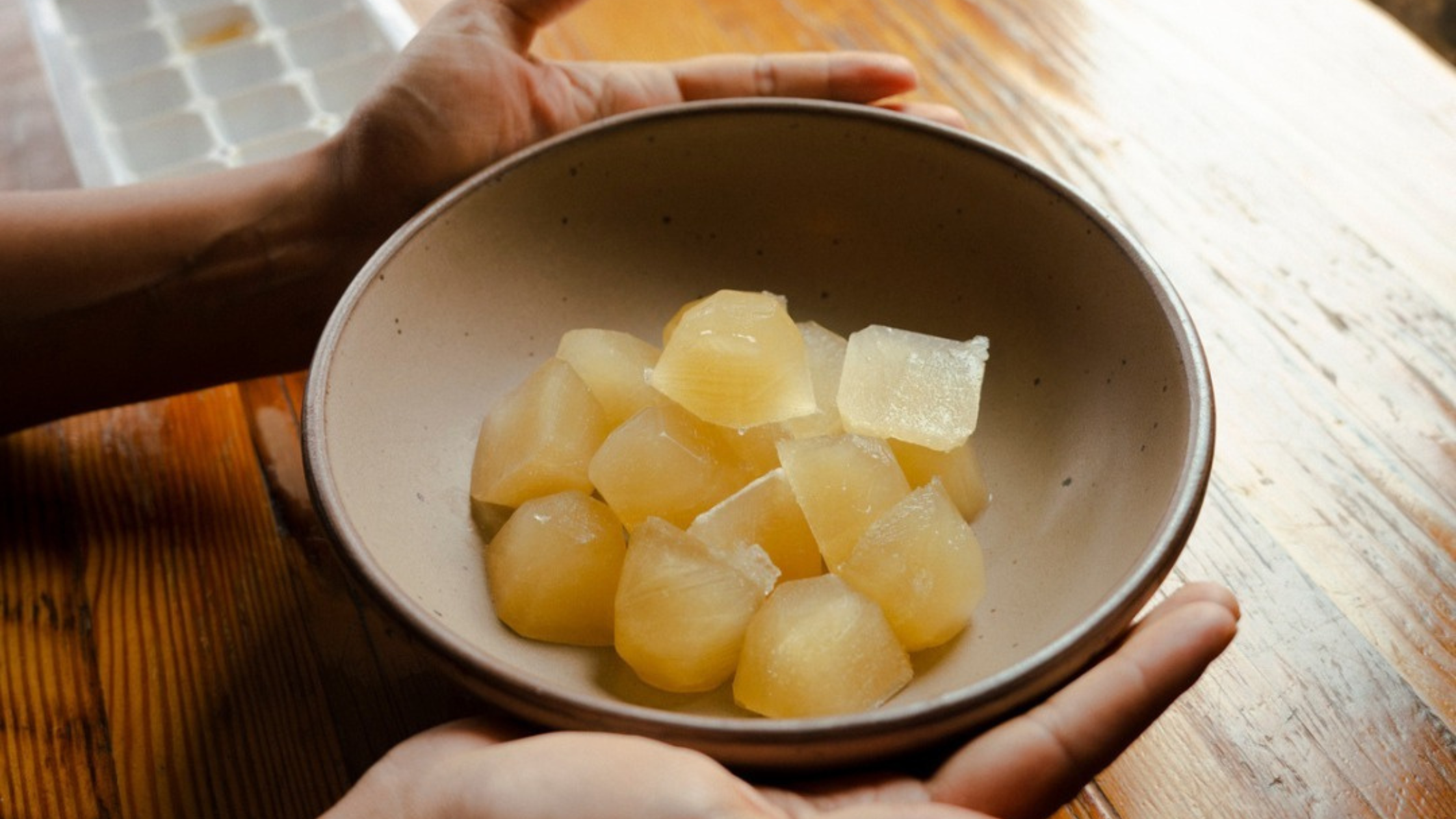Signs If Chicken Bone Broth Is Safe
Signs If Chicken Bone Broth Is Safe
Blog Article
The aImportance of Healthy And Balanced Food: Why Bone Broth Is a Terrific Selection for Babies
When it concerns your infant's nutrition, every option matters. Bone broth stands apart as a nutrient-dense choice, offering important nutrients that sustain development and development. Its abundant structure not only help digestion yet likewise boosts the immune system. Recognizing just how to integrate this functional food right into your baby's diet regimen can set the stage for healthy and balanced consuming practices. What are the finest means to present bone broth to your little one?
Nutritional Advantages of Bone Broth for Newborns
When you introduce bone broth to your infant's diet regimen, you're providing a nutrient-dense food that offers many health and wellness benefits. Loaded with crucial minerals and vitamins, bone broth contains calcium, magnesium, and phosphorus, which sustain your infant's expanding bones. It's likewise abundant in collagen, aiding in the growth of healthy and balanced skin, joints, and connective tissues.
Furthermore, bone broth is an excellent resource of amino acids like glycine and proline, which play a substantial function in total development and muscle advancement. These nutrients help advertise a strong immune system, setting a solid foundation for your baby's health and wellness.
Furthermore, bone broth is very easy to absorb, making it a gentle alternative for your kid. By integrating this wholesome food right into their meals, you're guaranteeing they obtain important nutrients essential for their general health. So, go in advance and make bone broth a staple in your baby's diet plan!
Just How Bone Broth Supports Digestion
Bone broth is packed with important nutrients that can actually profit your baby's digestion. It promotes gut health and wellness and aids with nutrient absorption, making it a terrific enhancement to their diet. By integrating bone broth, you're establishing the phase for a much healthier digestion system.
Nutrient-Rich Composition
One of one of the most nutrient-rich foods you can present to your infant's diet regimen is bone broth, which is packed with essential minerals and amino acids that support healthy and balanced digestion. Rich in collagen, bone broth aids enhance your child's gut cellular lining, making it much easier for their body to soak up nutrients. It offers jelly, which aids in damaging down proteins, advertising smoother food digestion. Furthermore, the broth consists of vital electrolytes like potassium and magnesium, guaranteeing your infant stays hydrated and balanced. The amino acids, such as glycine and proline, play a vital role in fixing cells and sustaining overall wellness (bone broth for infants). By integrating bone broth into your infant's meals, you're providing a wholesome food that supports their digestion system properly.
Promotes Intestine Wellness
As you introduce bone broth into your baby's diet plan, you'll discover it not only nourishes yet additionally promotes intestine health and wellness efficiently. Rich in gelatin, bone broth helps relieve the digestion system, lowering swelling and supporting a healthy gut lining. This is vital for infants, as a balanced digestive tract environment lays the foundation for general wellness. In addition, the amino acids found in bone broth, such as glycine, aid in digestion and can aid protect against common tummy difficulties. By incorporating this beneficial liquid, you're offering your baby with necessary nutrients that add to a successful digestive system. Eventually, a healthy and balanced gut can influence every little thing from resistance to mood, making bone broth an excellent selection for your little one.
Aids Nutrient Absorption
Introducing bone broth not just sustains intestine health however also plays a significant role in helping nutrient absorption. When you give your baby bone broth, you're supplying an abundant source of minerals and amino acids that boost their digestive system processes. The jelly in bone broth helps to soothe the gut cellular lining, enhancing its capability to take in vital nutrients. This indicates that important minerals and vitamins from various other foods are a lot more effectively utilized by your infant's growing body. In addition, bone broth has collagen, which sustains the development of healthy tissues and body organs. By including this nutrient-dense fluid right into your baby's diet, you're guaranteeing they obtain the maximum gain from their dishes, advertising total wellness and health.
Strengthening the Immune System With Bone Broth

By integrating bone broth right into your child's diet regimen, you're supplying a natural source of nutrients that promotes wellness. Take into consideration making bone broth a staple in your infant's dishes, as it can play a vital duty in their immune health and wellness and development.
Easy Ways to Integrate Bone Broth Into Child's Diet regimen
Incorporating bone broth right into your baby's diet can be simple and gratifying. Begin by blending a small quantity of bone broth right into pureed vegetables or fruits. This includes flavor and nutrients without frustrating your child. You can additionally make use of bone broth as a base for soups or stews that you prepare for the household, guaranteeing your child gets a taste of delicious, healthy meals.
One more alternative is to offer bone broth on its very own. Warm it up and supply it in a sippy cup or small bowl-- it's an excellent method to introduce new tastes. If your child enjoys grains, consider cooking rice or quinoa in bone broth as opposed to water for additional nourishment. Finally, you can ice up bone broth in ice trays, making it simple to add a dice to different meals whenever you want. These methods will assist your infant profit of bone broth easily!
Homemade vs. Store-Bought Bone Broth: What to Choose
Which is far better for your baby: homemade or store-bought bone broth? Home made bone broth provides you full control over the ingredients. You can pick top notch bones, organic veggies, and herbs, guaranteeing your baby obtains the most nutrients without additives or preservatives. And also, making it in the house can be a fulfilling experience, enabling you to bond with your infant while preparing wholesome food.
On the other hand, store-bought choices are convenient and save you time. Nonetheless, they commonly have preservatives and might not match the depth of taste and nourishment you get from homemade broth. If you go with store-bought, look for brands that are natural and devoid of additives.
Inevitably, if you have the time and resources, homemade bone broth is the premium selection for your child's wellness. If you're brief on time, select a top quality store-bought choice as a back-up.
Age-Appropriate Bone Broth Serving Pointers
As your baby look at this now grows, it is very important to tailor bone broth serving recommendations to their developmental phase. For infants around six months, begin with a few spoonfuls of diluted bone broth. Mix it with water or breast milk to make it much easier for them to absorb. As they become familiar with flavors, you can slowly present thicker broth by minimizing the dilution.
Once your child gets to around eight months, you can serve it warm in a sippy mug or add it to soft foods like purees. By the time your youngster is around a years of age, consider using bone broth as a standalone drink or mixing it into soups and stews. Simply ensure to maintain the broth reduced in sodium. Constantly keep track of for any responses, and consult your pediatrician if you have problems regarding presenting new foods. Appreciate this nourishing enhancement to your baby's diet!
Other Healthy Foods to Couple With Bone Broth for Infants
When you're wanting to boost the nutritional worth of bone broth for your infant, take into consideration combining it with nutrient-dense vegetables like carrots and spinach. Whole grain options, such as quinoa or wild rice, can additionally include appearance and fiber. In addition, incorporating healthy protein resources like shredded chicken or lentils will certainly round out the meal nicely.

Nutrient-Dense Veggies
Nutrient-dense vegetables are an amazing enhancement to bone broth for babies, enhancing both flavor and nourishment. Incorporating veggies like carrots, spinach, and pleasant potatoes can improve the vitamin and mineral material of your broth. Carrots supply beta-carotene for healthy and balanced vision, while spinach is packed with iron and calcium, crucial for development. Pleasant potatoes include all-natural sweetness and Continued are rich in fiber, assisting digestion.
You can conveniently mix these veggies into the broth or offer them as soft, cooked pieces alongside it. This not only presents new tastes however additionally motivates your little one to enjoy a variety of nutrients. By matching nutrient-dense veggies with bone broth, you're laying the foundation for a healthy and balanced diet plan right from the beginning.
Entire Grain Options

Healthy Healthy Protein Sources
Bone broth sets wonderfully with various healthy and balanced protein sources, additionally boosting your infant's diet regimen. Attempt including soft, cooked lentils; they're nutrient-dense and stuffed with healthy protein. You can likewise blend in shredded chicken or turkey, which are simple for your youngster to digest. If you're trying to find plant-based alternatives, take into consideration mashed tofu or pureed chickpeas-- both supply exceptional healthy protein without frustrating tastes. Eggs, when presented securely, are another terrific selection; they're flexible and filled with nutrients. Ultimately, blending in some well-cooked quinoa can include a good structure and extra protein. By incorporating these healthy and balanced protein sources with bone broth, you're giving your infant a balanced, beneficial dish that supports their development and advancement.
Often Asked Inquiries
Can Bone Broth Cause Allergic Reactions in Infants?
Yes, bone broth can create allergic reactions in infants, particularly if they're sensitive to particular components. Always consult your doctor prior to introducing brand-new foods and display moved here for any kind of indications of allergies after feeding.
How Should Bone Broth Be Kept for Babies?
You ought to save bone broth in impermeable containers, either in the refrigerator for as much as a week or in the freezer for up to 3 months. bone broth for infants. Always thaw it effectively prior to serving to your infant
Is It Safe to Offer Bone Broth to Premature Babies?
It's vital to consult your pediatrician prior to introducing bone broth to early babies. They'll assess your child's certain health and wellness demands and ensure it's secure, considering their unique dietary requirements and developmental phase. Constantly focus on professional suggestions.
What Are the Indicators of Intolerance to Bone Broth in Infants?
When introducing bone broth, expect signs like fussiness, breakout, looseness of the bowels, or vomiting. If your child shows any one of these reactions, it's ideal to get in touch with a doctor prior to continuing to provide it.
Can Bone Broth Be Made Use Of as a Dish Replacement for Newborns?
No, you shouldn't utilize bone broth as a dish replacement for babies. It does not have essential nutrients required for their development. Instead, incorporate it right into their diet regimen together with balanced dishes for added nutrition and taste.
Report this page